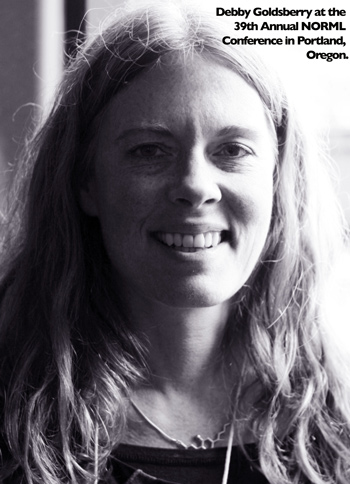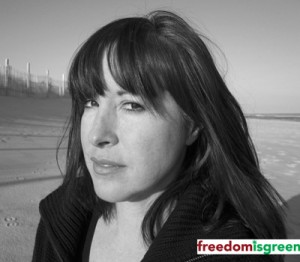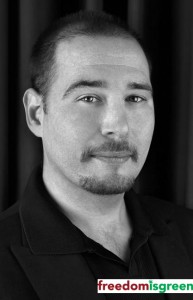
Image from PhillyNORML
This week advocacy organizations are holding events in dozens of communities calling for an end to the Drug War. President Nixon declared the failed effort 40 years ago – June 17, 1971.
More than 800,000 Americans are arrested each year for marijuana violations, more than for all other drugs combined.
From information workshops with activists to somber candle-light vigils for victims this is a poignant moment to take action. Below is a listing of events on the east coast – if we missed any please email [email protected] and we’ll be sure to add it here!
Drug Policy Alliance – Newseum Press Conference and Lunch
June 16, 2011 at 12:30PM-1:30PM
The Newseum, Knight Studio A, 555 Pennsylvania Ave., N.W.
Ethan Nadelmann, executive director, DPA
Jared Polis, Member of the U.S. House of Representatives from Colorado’s 2nd district
Peter Shumlin, Governor of Vermont
Sonja Sohn, actress from acclaimed HBO Series “The Wire”
Maxine Waters, Member of U.S. House of Representatives from California’s 35th district
http://nomoredrugwar.org/content/40th-anniversary-press-conference-and-lunch
New Hampshire Teapot Party
Vigil for victims of the War on Drugs
Friday, June 17 · 8:00pm – 11:00pm
Sidewalk in front of the Statehouse 107 N. Main Street Concord, NH
https://www.facebook.com/event.php?eid=225768200785782
New Jersey Marijuana Reform Groups
No More Drug War
June 17, 2011 at 12:00 pm – 1:00 PM
State House front steps, Trenton, New Jersey
https://www.facebook.com/event.php?eid=234598436557501
Direct Action for Rights and Equality
Block Party
The intersection of Lockwood & Hayward Streets Providence, RI
http://www.daretowin.org/
HempCT (Here Ends Marijuana Prohibition- CT)
End the Drug War
June 18, 2011 at 11:00 AM – 5:00 PM
Bushnell Park Pavilion- Hartford
http://www.hempct.org/
PhillyNORML
No More Drug War
June 17, 2011 at 8:00PM to 9:00PM
Independence Mall – 5th Street and Arch Street Philadelphia, PA
www.phillynorml.org
Project South and The Ordinary Peoples Society (TOPS)
No More Drug War
June 17, 2011 at 12:00 PM – 1:00 PM
Department of Justice 702 Spring St. Atlanta, GA 30308
http://nomoredrugwar.org/content/war-drugs-war-families-rally-40th-year-anniversary-war-drugs
Women On The Rise Telling HerStory-WORTH
Round table discussion and Vigil
June 17, 2011 at 1:00 PM – 4:00 PM
163 W. 125th Street, between 7th and Lenox
New York, NY 10027
http://nomoredrugwar.org/content/roundtable-discussion-and-vigil
Institute of the Black World 21st Century’s Black Family Summit
Forum on the War on Drugs
National Press Club: 529 14th Street Northwest
Washington, D.C.
Rev. Jesse Jackson Sr., Congressmen John Conyers Jr. and Bobby Scott.
Institute of the Black World
http://www.ibw21.org/
George Washington School of Law
June 17, 2011 at 8:00 PM – 9:00 PM
Lafayette Park 1600 Pennsylvania Avenue Northwest, Washington D.C
Facebook Event Page
SSDP National Media Contact: Stacia Cosner 410-299-3433
On-site Media Contact: Irina Alexander [email protected] 410-971-6588
West Chester University Students for Sensible Drug Policy
June 17, 2011 at 4:30 PM – 7:30 PM
High and Market Street, 2 North High Street West Chester, PA 19380
Facebook Event Page
On-site Media Contact: Joshua Merer 908-358-6026 [email protected] or Trevor Hosterman 610-812-2235 [email protected]
West Virginia UniversityJune 17, 2011 at 7:00 PM – 10:00 PM
De Lazy Lizard: 345 High Street Morgantown, WV
Facebook Event Page
On-site Media Contact: Tom Wytiaz [email protected] 304-203-3842
SSDP National Media Contact: Stacia Cosner [email protected] 410-299-3433
Florida State UniversityJune 17, 2011 at 7:30 PM
Lake Ella, Tallahassee
Facebook Event Page
On-site Media Contact: Cody Swingle [email protected] 814-454-9359 or Mallory Wharton [email protected] 850-766-4191
University of Miami
June 17, 2011 at 8:00 PM
Miami Beach Police Station
1100 Washington Avenue, Miami Beach, FL 33139
Facebook Event Page
On-site Media Contact: Alfred Kilzi [email protected] 3054981616 or Sabrina Koramblyum [email protected] 917-753-5620
University of Rhode IslandJune 17, 2011 8:00 PM – 9:00 PM
India St. Providence RI 02903
Facebook Event Page
On-site Media Contact: Kristin Purvis [email protected] 401-714-6458
SSDP National Media Contact: Stacia Cosner [email protected] 410-299-3433
Columbia University
June 17, 2011 8:00 PM – 9:00 PM
Columbia U. Sidewalk – 116th Street and Broadway New York NY 10027
Facebook Event Page
On-site Media Contact: Katharine Celentano, [email protected], 914 420 2525
More events at:
http://ssdp.org/events/40years/list
http://nomoredrugwar.org/take-action#events
http://www.meetup.com/teapotparty








